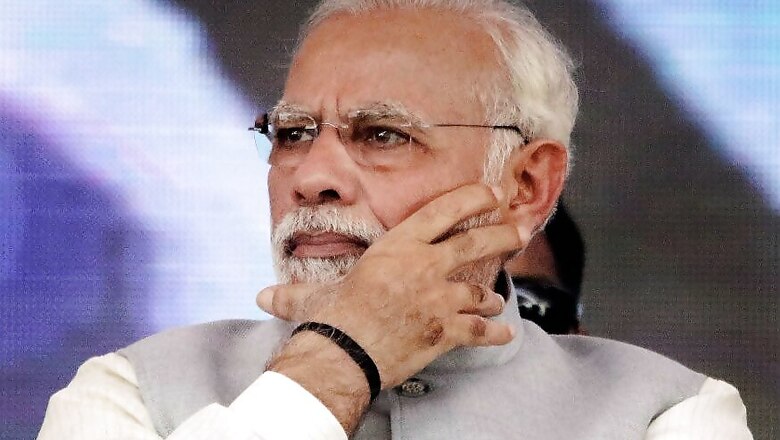
views
New Delhi: Despite the National Democratic Alliance government making Startup India a cornerstone of its policies, the project does not seem to have scaled the anticipated heights. In a written reply to Lok Sabha on Monday, department of industrial policy and promotion (DIPP) informed that only 18 states in India have formulated a startup policy with the north-east housing the least number of recognised startups.
Even in states where the policy is being implemented, the results are not very impressive. The communication revealed that Meghalaya, Mizoram and Sikkim have just one recognised startup each. Kerala, on the other hand, has made the least investment in startups - Rs 21 lakh.
Meanwhile, Maharashtra with 2,130 recognised startups has made the biggest investment of over Rs 200 crore.
The government said on Monday that the allocation to SIDBI out of Funds of Funds for Startups (FFS) has come down to Rs 100 crore in FY17 from Rs 500 crore in the previous fiscal. The government had established Rs 10,000 crore FFS to meet the financial needs of startups.
The DIPP is the monitoring agency, while Small Industries Development Bank of India (SIDBI) is the operating agency for the FFS. "Rs 500 crore has been released to SIDBI in FY16 and Rs 100 crore in FY 17 out of Fund of Funds for startups," Minister of State for Commerce and Industry C R Chaudhary said in a written reply to the Lok Sabha.
He said that total commitments under FFS stand at Rs 1,285.7 crore to 27 Alternative Investment Funds (AIFs). "142 startups have received funding under FFS with catalysed investment of Rs 602.60 crore," he added.
Total amount of the scheme is to be released over two Finance Commission cycles, that is, by the year 2025. Chaudhary also said that for incubation and funding support more than 550 startups have been mentored, 2.2 lakh registrations have been done and over one lakh queries have been handled by the Startup India Hub as of June.
Under the 'Start-up India Action Plan', the government announced incentives, including tax holiday and inspector raj- free regime, besides capital gains tax exemption and Rs 10,000 crore corpus to fund them.
The Indian startup space is a throbbing job-generator, however, mere replication of Western ideas and lack of technical innovation is forcing venture capitalists to restrict funding , resulting in slow decay of entrepreneurial ambitions.
In a report by IBM Institute for Business Value and Oxford Economics, it was found that 90 percent of Indian startups fail within the first five years. And the most common reason is lack of innovation.
Despite the fact that market valuation of Indian startups has grown significantly over the past four years, the study, “Entrepreneurial India,” states that 77 percent of venture capitalists surveyed believe that Indian startups lack new technologies or unique business models.
With India scaling its way up to become the third-largest startup ecosystem, the picture might seem rosy on the outside but accounts for further unemployment as more and more startups pull the curtains down.
US based think-tank Information Technology and Innovation Foundation (ITIF), in a survey in 2016, ranked India among the bottom of a list of 56 countries on global innovation. The ITIF study revealed that the country’s poor performance in developing human capital is mainly because of its failure in investing on education.
New technologies emerging in India can be ascertained from the number patents applied for. India filed 1,423 international patents in 2015-16, while Japan filed 44,235, China 29,846 and South Korea 14,626, according to the World Intellectual Property Organization.
Currently, India ranks 66th on the Global Innovation Index (GII) list, which is 41 places behind China. The GII report said India has the ingredients needed to become a global driver of innovation, including market potential, talent pool and an underlying culture of frugal innovation, but “relative weaknesses exist in the indicators for business environment, education expenditures, new business creations and the creative goods and services production.”

















Comments
0 comment